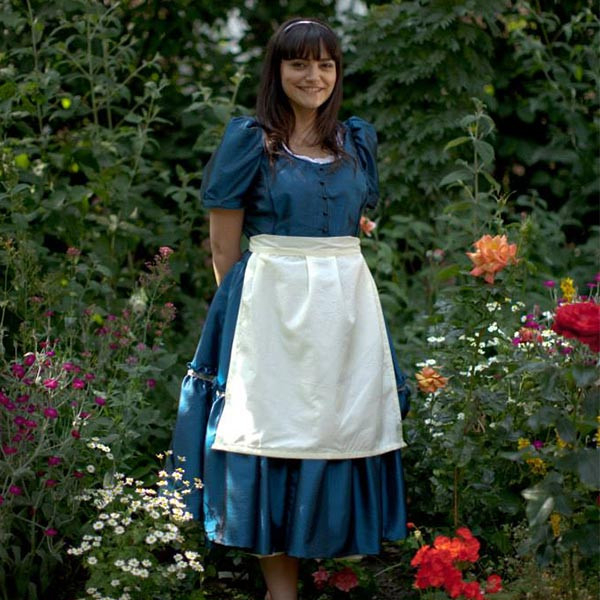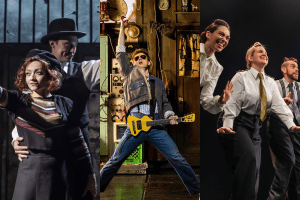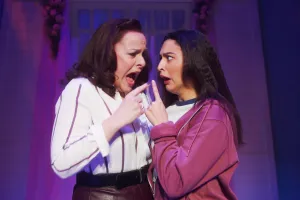Guest Blog: Why we shouldn't be pessimistic about stage adaptations
Daniel Winder of Iris Theatre tells us why he disagrees with the assertion that the current glut of adaptations is bad news for theatre

Adaptation and re-interpretation is a very particular challenge. I have already faced it with Alice in Wonderland twice, first as the writer charged with adapting Lewis Carroll’s phantasmagorical book, and second as a director re-interpreting Andrew Lynford’s hugely successful 2013 site-specific production for the Cockpit this Easter.
In Michael Billington’s generally glowing review of the Almeida, Headlong and Nottingham Playhouse's recent production of 1984 he sounded a note of caution around the whole issue of adaptation for the stage, writing:
"Much as I admire the fierce intelligence behind this adaptation, I have a wider concern. There is a long line of work, from War Horse and The Curious Incident of the Dog in the Night-Time, to Let the Right One In and American Psycho, which suggests that our increasingly interpretative theatre is drawing its strength from new versions of existing books and films. Some of these productions are remarkable. So, too, is this 1984. While I know that the Almeida has two new plays in the pipeline, I worry that the theatre is rapidly becoming a place of dramatizations rather than original drama."
Though I am a strong supporter and advocate of original work I do not share Billington’s pessimism or worries around adaptation. Like many directors, I regard theatre as a fundamentally interpretive art form. For theatre directors there is never a blank sheet of paper; we are always reacting to a set of pre-existing inputs, whether script, design, performers, music, or all of the above. Many of our finest writers have also embraced adaptation as a fertile ground for creativity. Shakespeare himself spent most of his career adapting the stories of others, from classical sources, or the historical record, and I do not think we could accuse him of lacking imagination or creativity.
However, I do acknowledge the broader risk that Billington is raising. If all theatre becomes mere dramatization, if all we are attempting is the raising of a corpse of a long past book, film or performance, then the likelihood of a living act of communion between audience and performers is low; and without that physical communion theatre loses its function, its driving force, its reason to be.
The dramatization trap is particularly broad and deep with Alice in Wonderland. The book is full of characters and dialogue sequences so familiar to audiences that to leave them out feels like a betrayal, but to leave them all in stifles any opportunity for re-discovery. It is all too easy to end up with actors spouting phrases like marionettes in a Lewis Carroll theme park.
Alice in Wonderland as a book is dream-like and fragmentary in form. Alice drifts from scene to scene, moment to moment; events happen to her, environments morph and bend around her. The challenge for any stage adaption is to maintain all this colour and movement whilst giving Alice a more active motivation to drive her through the story. Theatre thrives when its protagonist has a reason to move forward, to continue onwards down the path, even if the wood is dark and the branches are closing in around her. In my adaption, while maintaining Alice’s natural ease and openness, I wanted to challenge her more. My Alice is lost in a world she does not recognise, unsure of where she has come from and searching for her own identity and name. Her journey, and characters she meets, will eventually allow her to discover who she really is.
The other main writing challenge was to create dialogue, and particularly song lyrics, that honoured the feel and sound of Carroll’s wit-filled lines but were not a pale and tepid impression. One of the ways I tried to get beyond a stale imitation of Carroll’s sound was by exploring my own pleasure in paradoxical logic and word play. My former life as a theoretical physicist is an interesting parallel with Carroll’s academic career as a mathematician, and perhaps provided a useful common ground between the two of us in the rarefied world of scientific logic.
My approach to re-staging and re-imagining Andrew’s site-specific production has also been a challenge, and in a way this is also an act of adaptation. All of Iris Theatre’s shows in the grounds of St Paul’s Church involve a lot of movement for both audience and performers, with an environment that envelops the viewers into the world of the piece. Bringing that sense of immersion into a theatre space has required a radical re-imagining of the staging by my designer, Fraz Roughton. Rather than the audience moving from place to place we have had to find ways for scenes to flow in and out of the same space in a fluid and seamless way. We have also worked hard to maintain all the moments of audience interaction that make Iris shows so unique, with an audience that feels part of the Mad Hatter’s Tea Party, who help to create a Sea of Tears and may even get the chance to play Croquet with the Queen.
The starting point for any adaptation; from text, or film, or performance; should be the perceived artistic impulse that drove forward the original act of creation. If you honour that initial creative spark, if you breathe life back into that moment of invention and find it anew for yourself, then what follows will hopefully embody something of the original, whilst also being a new and living creation in its own right.
In this way you have the chance to add your voice to the unending creative conversation cascading down the generations, and in my case, an opportunity to discover my own version of Alice’s Wonderland.
Alice in Wonderland runs at the Cockpit Theatre from 16 to 20 April 2014












